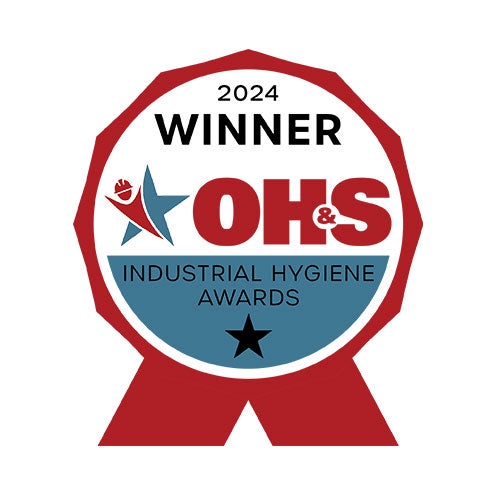CSR and Sustainability certifications and labels represent a voluntary initiative that companies undertake to publicly demonstrate their dedication to sustainability and ethical practices. This commitment extends to stakeholders like consumers, suppliers, investors, and employees. Beyond boosting credibility and marketing potential, obtaining these certifications and labels can open doors to new business opportunities, including attracting new clients and entering new markets. Moreover, they provide companies with valuable guidance in shaping their CSR and Sustainability strategies, connecting with like-minded businesses, and achieving their objectives.
The terms ‘certification’ and ‘label’ are often used interchangeably, which can lead to confusion for those not well-versed in CSR. Nevertheless, it’s important to distinguish between them:
- Certifications involve a formal and often rigorous evaluation conducted by third-party organizations or certification bodies. This process includes audits, inspections, testing, and documentation reviews to ensure compliance with specific standards or criteria. Certifications focus on verifying that a product, service, or organization meets predefined quality, safety, sustainability, or regulatory requirements. Examples include ISO 14001 certification for environmental management systems and Fair-Trade certification for ethically sourced products. ISO offers widely recognized international CSR certifications, while others are usually industry-specific.
- Labels typically don’t require a formal certification process. Organizations or product manufacturers voluntarily provide information to be displayed on labels, often based on their own assessments or industry best practices. Labels aim to inform consumers about various product attributes, such as ingredients, nutritional facts, environmental impact, or other relevant details. Examples of labels include Lucie 26000 or EU-organic production-regulation.
Overview of some of the main frameworks, standards, labels & certifications (non exhaustive list) to get you started:
| Topics | Voluntary Frameworks and standards | Voluntary Reporting Standards | Labels & Certifications |
| Environment | – Task Force on Climate-Related Financial Disclosures (TCFD)
– Taskforce on Nature-related Financial Disclosures (TNFD) |
– Partnership for Carbon Accounting Financials
– GHG Protocol – Carbon Disclosure Project |
– ISO 14001
– SBTI – Fair for Life – Fair Trade |
| Social | ILO Declaration on Fundamental Principles and Rights at Work | – ISO45001
– Great Place to Work |
|
| General Sustainability | – UN Global Compact
– UN SDGs – OECD Guidelines for Multinational Enterprises
|
– SASB
– ISSB/IFRS – ESG Data Initiative |
– Lucie 26000
– B-Corp – EcoVadis (rating) |
Understanding the Various Types of CSR and Sustainability Labels and Certifications
While leveraging labels and certifications can effectively highlight a company’s CSR strategy and commitment to stakeholders, it’s crucial to understand that a one-size-fits-all approach doesn’t work. We can categorize these designations into three main types: general, sector-specific, and thematic.
- General labels and certifications scrutinize a company’s comprehensive CSR commitments, processes, and initiatives. These designations, once a significant differentiator, are now increasingly expected by consumers. For instance, the globally recognized B Corp certification employs a rating system and conducts regular audits to ensure adherence to its principles. The SBTI (Science-based Target Initiative) certifies companies’ climate trajectories and their alignment with the Paris Agreement. Other frameworks like the ISO norm 26000, UN Global Compact and Ecovadis, while not traditional labels or certifications, hold similar legitimacy and validation for a company’s CSR efforts.
- Sector-specific certifications and labels are tailored to practices and products within specific industries. Labels offer more flexibility, applying to a particular product or service within an industry and adapting swiftly to technological advancements. For example, the Fair-Trade certification is often used for consumer goods (particularly in the food and clothing industries) and it ensures that products meet ethical standards, including fair wages for workers and sustainable production practices.
- Thematic certifications and labels address issues relevant across all industries and company sizes. For example, the ‘Fair for Life’ label evaluates ethical and sustainable production methods. Thematic designations vary significantly in reliability and scope.
While labels and certifications can effectively showcase a company’s commitment to CSR, it’s essential to recognize that a one-size-fits-all approach is inadequate. The categorization of these designations into general, sector-specific, and thematic types underscores the diverse landscape of CSR recognition. Each category serves a unique purpose, and businesses should carefully consider which aligns best with their CSR goals and industry context.
What to Consider When Choosing the Right Label/Certification for Your Company
In recent years, the CSR and Sustainability landscape has seen a surge in certifications and labels, catering to evolving corporate needs and the demands of discerning consumers. This increase can confuse consumers and dilute the meaning of these labels. Some certifications may lack rigorous standards or consistent criteria, allowing companies to engage in greenwashing without a true commitment to sustainability practices. Additionally, evolving industries and technologies may render some certifications outdated, emphasizing the need for ongoing adaptation to stay relevant.
Selecting a CSR certification depends on several factors. Here are some important criteria to consider when deciding to choose one:
- The first step is to clearly define the company’s communication objectives. Some labels are more effective for communicating with customers, investors, employees or partners, while others may be better suited for strengthening relationships with internal stakeholders or meeting regulatory requirements.
- The choice of certification or label may also depend on the company’s CSR objectives. What specific areas does the company want to improve in terms of its social and environmental performance? Does the company need to reach new markets? Certifications and labels can open new opportunities and this initial step guides the choice towards one that aligns with these objectives.
- Each CSR certification or label has its own criteria and requirements. It is important to understand these requirements in detail and ensure that the company can meet them. Some certifications may be more demanding than others, so it is important to choose the one that best aligns with the company’s capabilities and resources.
- The credibility and recognition of the certification or label are essential. It is important to choose a certification that is widely recognized in the industry or among relevant stakeholders, as this can enhance the company’s reputation and competitiveness in the market. Some labels or certifications are also specific to certain industries, while others are more general. It may be wise to look for certifications that align with the typical sustainability practices of your industry.
- The certification process can be costly in terms of time and resources. Therefore, it is essential to consider the available budget and the company’s ability to allocate resources for obtaining the label or certification.
Choosing a CSR certification or label requires careful consideration based on the company’s specific objectives, industry sector, available resources, costs, long-term commitments, and overall communication strategy. It is highly recommended to consult with CSR and Sustainability experts to make an informed decision.














